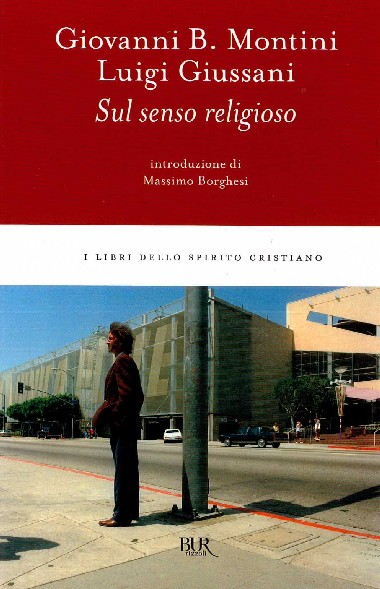Human nature has many capacities, but among them there is one fundamental one, which sums up all the purposes of the others—it is the religious sense. It is an element of our nature that indicates the possibility of entering into relationship with the ultimate meaning of all things, that is, with God. Like any other human capacity, the religious sense is not activated spontaneously, but must be prompted, and the means God uses for this purpose is created reality. It is a natural revelation with varying degrees; the very existence of things raises the question of their meaning, then the beauty of the cosmos, its orderly movement and the providential movement of peoples and nations inside it. The two highest degrees of natural revelation are finally the emergence of the “I” and its awareness of good and evil. All these elements show that the world is a sign of God; although such revelation is discrete, it has no full evidence because, through the interpretation of signs, God gives way to human freedom. Interpreting the world as a sign requires our being aware that we are dependent and thus our paying attention to reality, accepting it as a gift.
Historically, the religious sense has been expressed in several ways. The first is natural religion, which observes the phenomena of nature as manifestations of God, viewed symbolically and worshiped through ritual. However, natural religion cannot really enter into a relationship with God, because it only has a negative knowledge of Him—His existence cannot be denied, but nobody knows who He is. Therefore, a sense of dependence, which is essential for the religious sense, is replaced by a claim to measure God, reducing Him to idols. This is how ancient and modern idolatries, such as pantheism, scientism, Gnosticism, agnosticism, emerged.
Man mostly distorts the sense of natural reality and gets lost; that is why God directly intervenes in human history, with Abraham for the first time. He reveals Himself as a person, totally free in His action, and as the one lord of the world. The God of Israel educates to a new religious sense that is founded on hearing and accepting His word. However, this is not easy and involves an absolute willingness to abandon one’s own criteria, as the account of the sacrifice of Isaac shows. But God’s revelation had its greatest and most definitive moment in the coming of Christ. He showed the very essence of divinity—being is not just unity but love. Originally, existence is a community of three Persons in the unity of nature. Love produces absolute dependence, exceeding that of the servant, while fully respecting the freedom of the “I,” thus achieving the full measure of the religious sense.
Today Christ prolongs His presence in the Church which by its authority brings to the world the certainty and truth of revelation and enables the rise of a Christian culture. At the same time, Christ allows God to communicate Himself in an intimate and personal way to man through the sacraments, which enable people to participate in the very life of God. The liturgy is the privileged place for this encounter.
We are all made prophets by the coming of Christ, that is, we are sent into the world and called to bear witness. The Christian community thus creates a new environment in the world. Family is the first place where it acts, but this experience must also be communicated at work and at school, because it is in these places that everyone’s family tradition becomes personal certainty. Christians are therefore called to bear witness to the whole of society, where a secular mentality tends to miseducate the religious sense.






